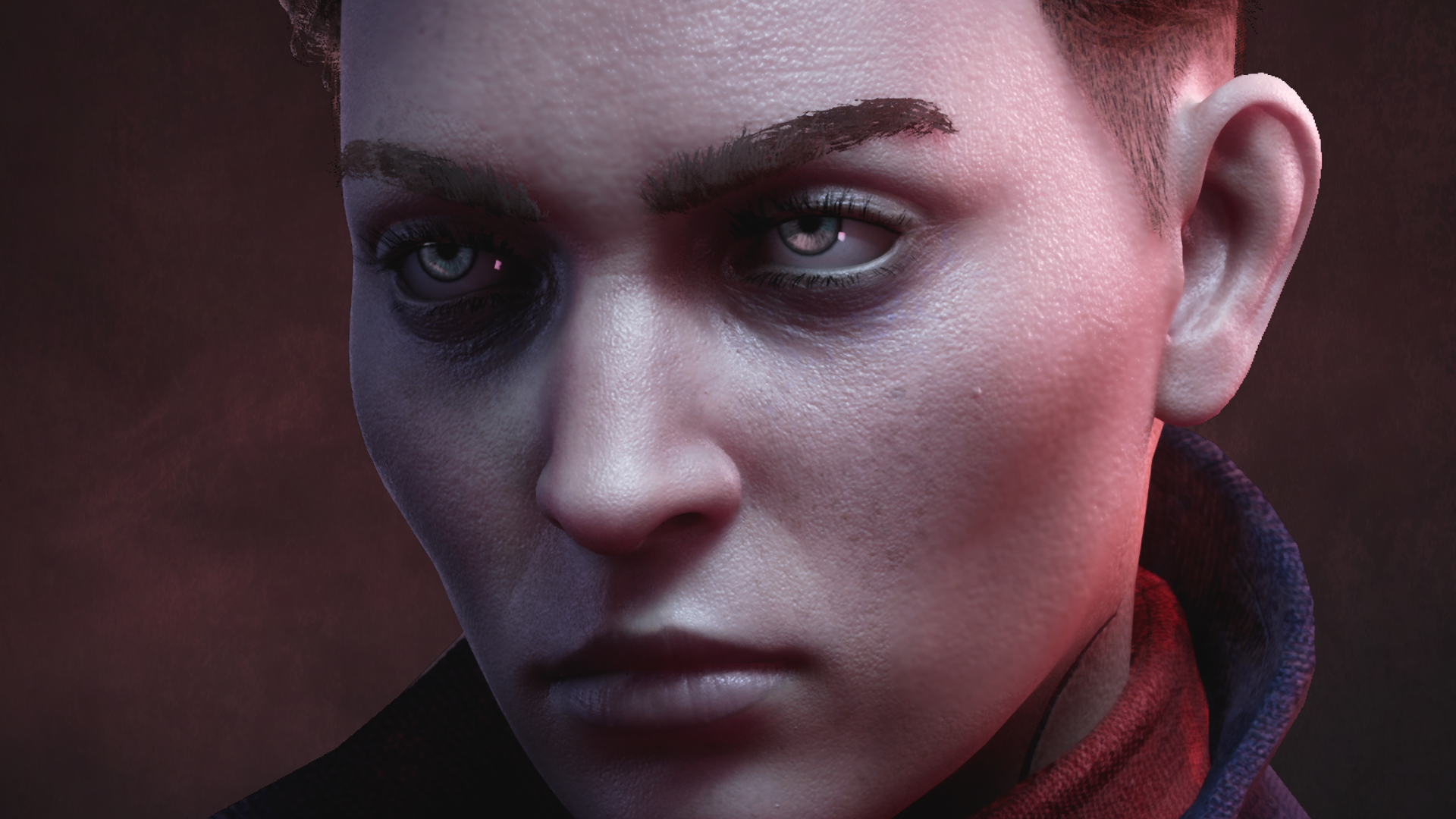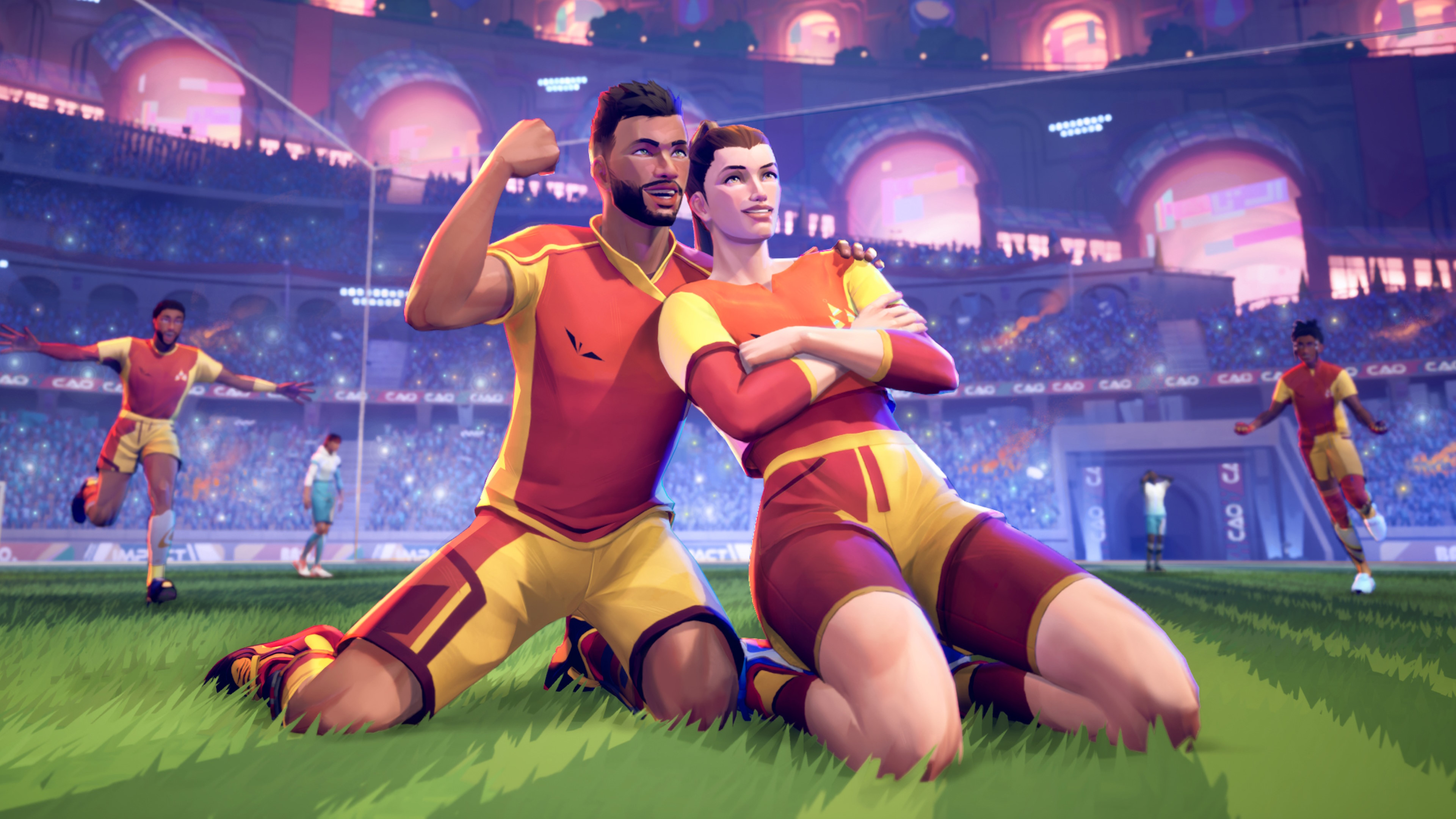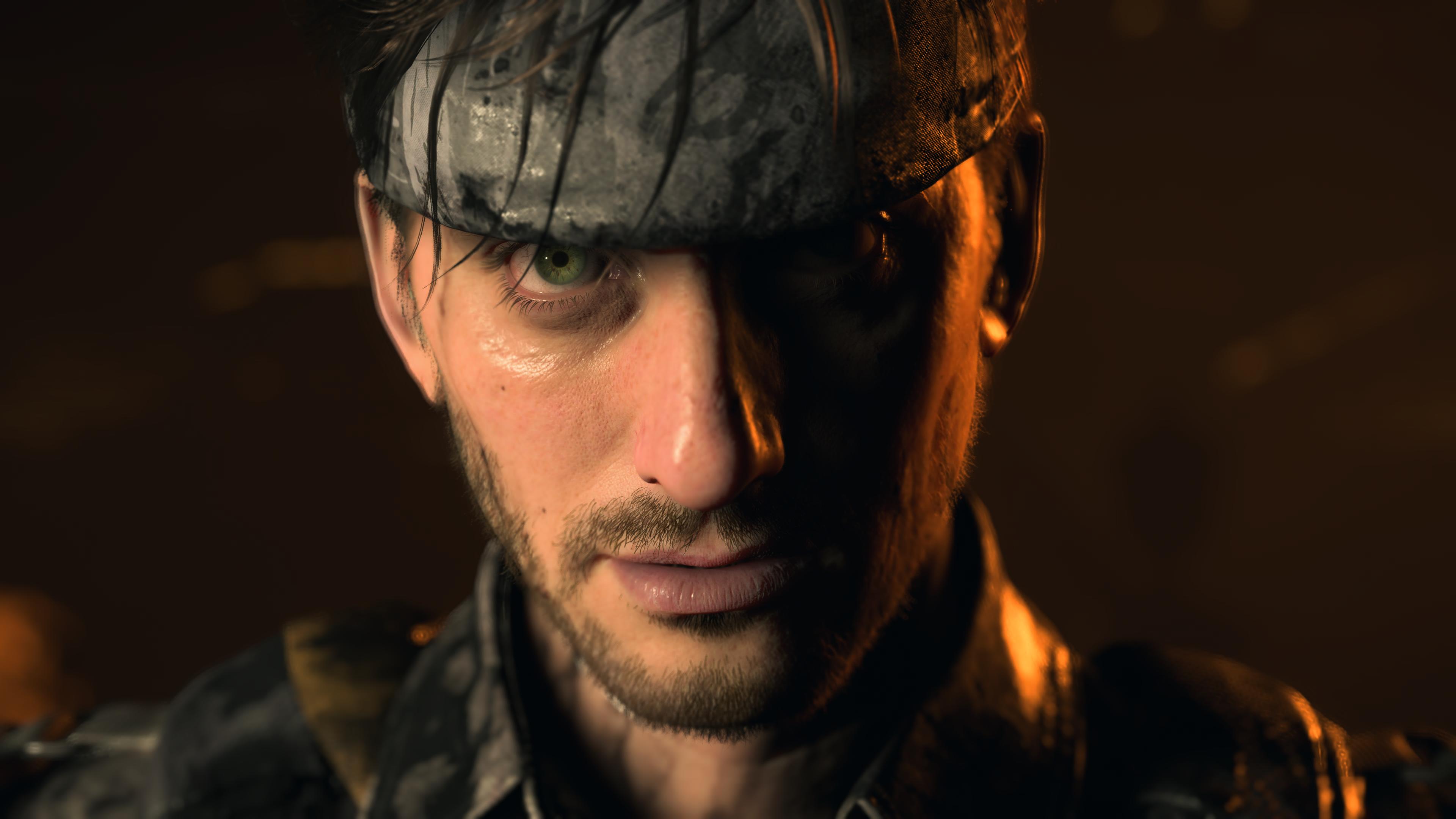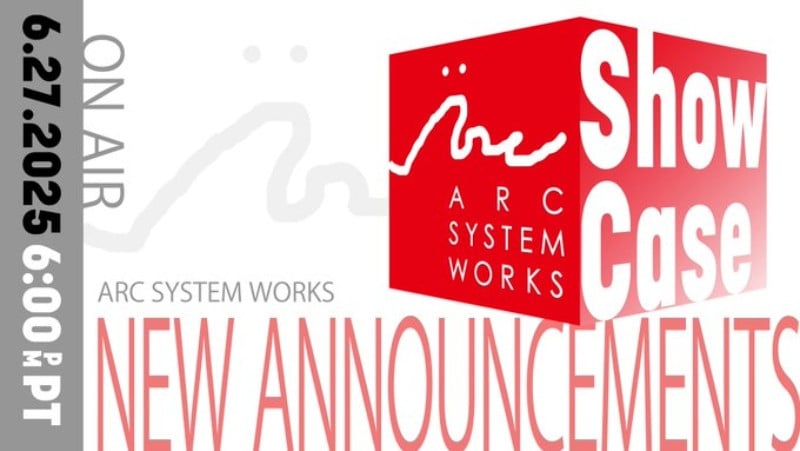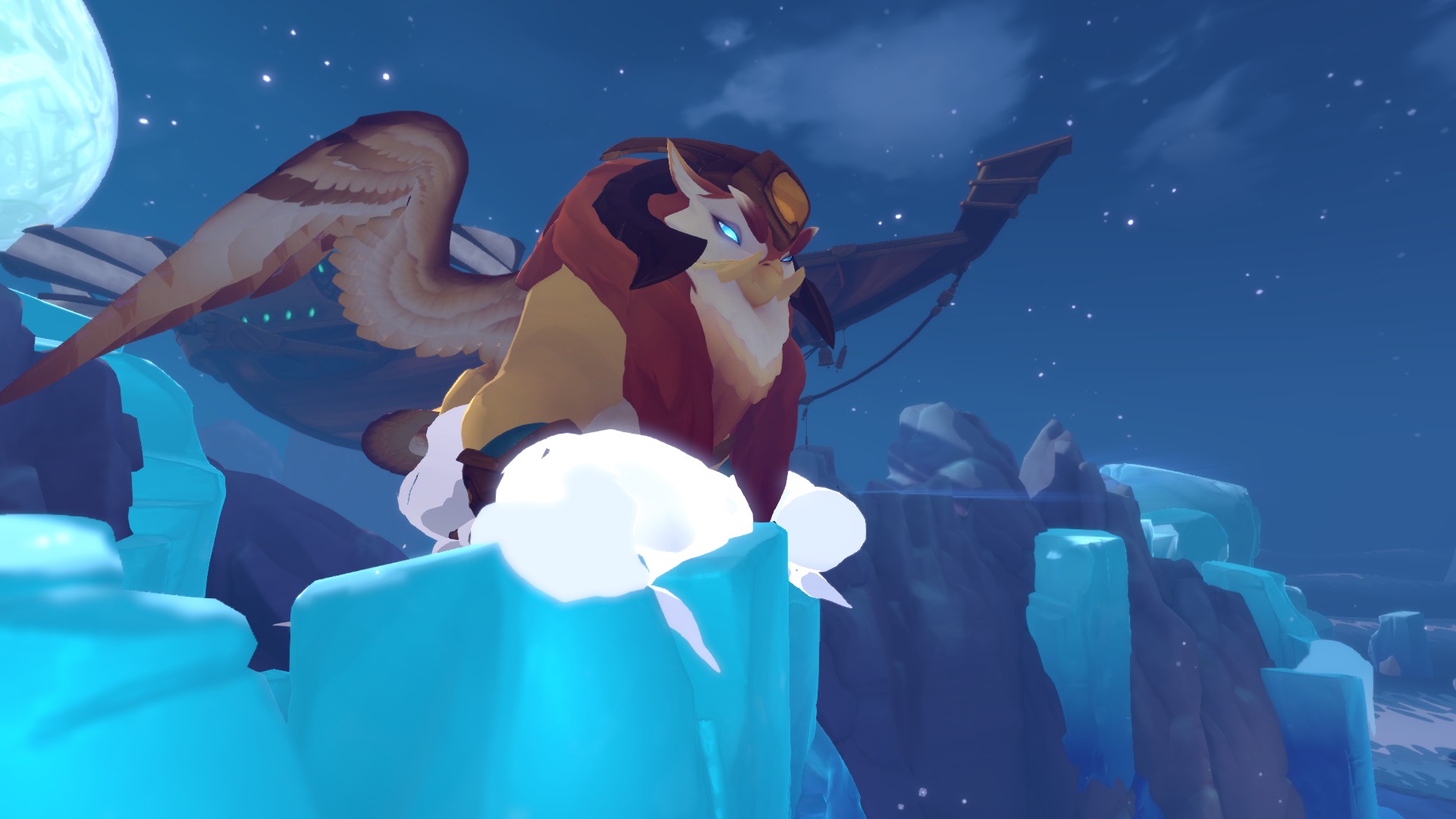
Authentication errors notwithstanding, we are so back.
Six years ago, the Gigantic subreddit pinned a mod post titled “Grief is the price we pay for love.” Only a year after release, the MOBA/hero-shooter hybrid shuttered its servers after fighting tooth and nail to even release in the first place. Much like contemporaries Battleborn and Paragon, Gigantic pulled together a small, enthusiastic community, but nothing that could match the roaring success of Overwatch a year earlier.
Gigantic feels less like a sweaty esport and more like an unhinged arena shooter lobby
As a fan of Gigantic before its death I was elated when last year’s mysterious private playtest seemed to imply a revival was in the works, and even more elated to learn that it actually was. Gigantic is one of the few live service games to rise from the grave with Rampage Edition, now with a new studio and Arc Games (formerly Gearbox Publishing) behind the wheel. But if Gigantic was too late to the party to stay afloat the first time around, why would things be different half a decade later?
Well, that small community was so enthusiastic for a reason. As MOBAs and hero shooters go, Gigantic is unique. It’s less about galaxy-brain tactics and more about constant brawling for resources. There are no lanes, towers, creeps, or capture points. There’s no gold farming. In fact, there’s hardly any downtime at all: as soon as a match starts you blast onto the map from an airship and start looking for team fights.
Rather than push a payload, you charge up one of two warring kaiju by killing enemy players and collecting power from nodes which light up all over the map. First team to 100 power gets a massive speed boost to hurl themselves at the enemy Guardian and get a few whacks in before everything resets. Chew through three of the enemy Guardian’s health bars and you win.
In a 45-minute match of League of Legends or DOTA 2, you might go without killing enemy players for whole minutes at a time. Gigantic’s setup does away with this, emphasizing all aspects of the genre that encourage combat and dismantling any that don’t. What you’re left with is a game that feels less like a sweaty esport and more like an unhinged arena shooter lobby. It was refreshing back when Overwatch League was taking its first baby steps, and it’s doubly so now that The Finals, Valorant, and Apex Legends have all scored massive playerbases with intensely tactical squad play.
This is taken to an extreme in the headline mode new to this revival, Rush, which is the only one available until you’ve gotten a few games in. Rush discards a number of mechanics from the Gigantic of old—now called Clash—to get you in and out in record time. My shortest Rush match was an anarchic 4 minutes of nonstop pushes and multikills. It was exhilarating, though so chaotic that almost all coherence was lost.
While a lot of the depth and breadth of the game’s original mode is missing in Rush (and I dropped it once I could play Gigantic as I remembered it), the popularity of ARAM and Turbo modes in League of Legends and DOTA 2 show that there’s a lot of enthusiasm for leaner experiences in the MOBA genre. And that same philosophy is why I think Gigantic has a chance in 2024—even Clash is refreshingly lean action in the midst of all those meta-heavy shooters.
Gigantic: Rampage Edition also has revamped tutorials, new maps, and two new heroes: Sickle-wielding illusionist snake/cat/guy Kajir, and grizzled bounty hunter Roland, whose satisfying grappling hook-into-shotgun blast combo has locked him in as one of my favorites. I remember concept art for Kajir floating around before Gigantic’s servers were shut down, so it’s like walking into an alternate universe where the party never stopped.
The only thing harshing my mellow in Gigantic: Rampage Edition so far: bug after crash after failed queue. The launch has been rocky, to say the least, with players unable to successfully find matches for hours at a time. It’s the usual launch day stuff—and is probably because they broke their all-time player count record within a day—but it’s continued intermittently for days now, with a mysterious line of text proclaiming ‘PATHS NEED TO BE REBUILT’ on the menu screen. I’ve also experienced graphical glitches, with Guardian animations failing spectacularly, queue wait timers displaying when I’ve not queued for anything, and end-of-match screens not loading at all. Once I get into matches nothing actually stops me from playing aside from the occasional lag spike, but all the instability indicates a lack of polish that I don’t remember haunting the original game.
The revival team at Abstraction Games seems to be hard at work rolling out regular fixes, and they promised players a compensation package once all those paths in need of rebuilding are sorted out, so hopefully this is all over soon.
(Image credit: Abstraction Games)
(Image credit: Abstraction Games)
(Image credit: Abstraction Games)
(Image credit: Abstraction Games)
(Image credit: Abstraction Games)
Perhaps the most refreshing aspect of this revival—but one that has me concerned for its sustainability—is the choice to completely forego microtransactions and instead opt for a low box price with all heroes and skins unlocked for free by playing. I was unlocking new characters after every single match, and in the two days I’ve been playing, I’ve secured the entire roster and skins for all my favorite heroes, so I can’t imagine it’ll be long before I have everything I’ll ever want. Time will tell if any DLC or new heroes will be added to satiate the new playerbase, but it’s rare a game in this genre keeps players around without constant infusions of new stuff.
All that said, it’s vastly preferable to the glut of battle passes, rotating limited-time purchases, pricey skin bundles and so on I’m met with whenever I open Fortnite or Valorant. It’s a nice change of pace to see a (kind of) new competitive multiplayer game not nickel-and-diming players for all they’re worth.
I’ve relished the chance to revisit a game I thought I’d never play again, and that feeling drowns out the frustrations I’ve felt wading through glitches and lag spikes. I don’t sense some impending comeback by which Gigantic overpowers its competition—after all, they’ve thrived in the half-decade Gigantic has been absent—but it’s officially playable again, and that’s a huge win for the game’s small, enduring community. The long-running boom of live service games has left gamers with a graveyard full of failed experiments, so hopefully Gigantic can stay on the right side of the dirt while it’s still got a chance.
So, how about Battleborn next?
